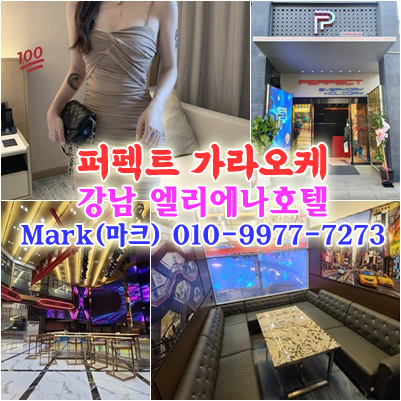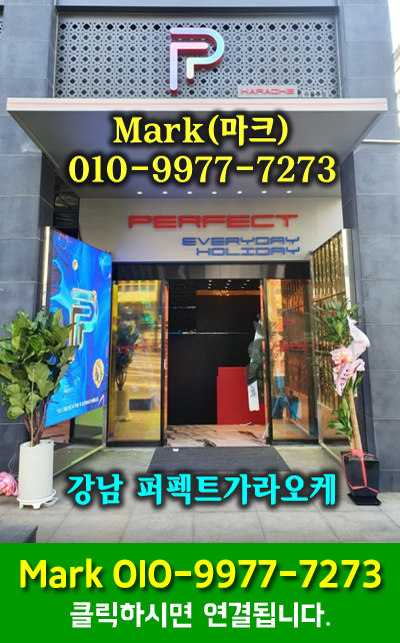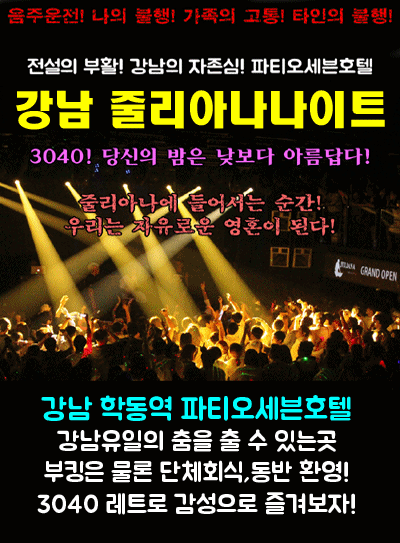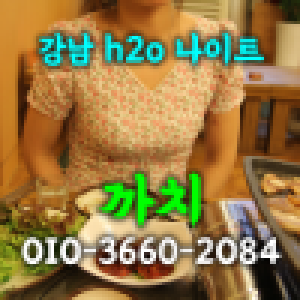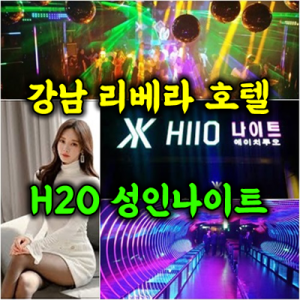Do You Make These ADHD Treatment Without Medication Mistakes?
컨텐츠 정보
- 15 조회
-
목록
본문
There are many other treatments for ADHD. However it is not necessary to take medication to get relief. These include Neurofeedback, Cognitive behavioral therapy, Yoga, Meditation, and Neurofeedback. These techniques are effective in treating ADHD without the need for medication. The last two treatments are relatively affordable. You should consider discussing these methods with your physician. There is no reason to be suffering from ADHD - you don't have to.
Cognitive therapy for behavioral problems
Cognitive behavioral therapy is a good option for those looking for adhd medication for adults treatment that doesn't require medication. ADHD is typically characterized by frequent emotional ups and downs, which can negatively impact a person's relationships and daily activities. ADHD sufferers can be annoyed by minor setbacks or queues. Individual therapy can help you deal with your emotional baggage. This could be due to low self-esteem, shame, or resentment.
In cognitive behavioral therapy your therapist will teach strategies for dealing with problems that may arise. You might learn to break down difficult tasks into smaller parts. It is also possible to learn to properly file papers and use an organizer. These positive habits strengthen each other and may result in positive attitudes and behavior. This is particularly helpful in the event that you're struggling with behavior at school. These behaviors could result in more adaptive actions.
The study examined 50 patients suffering from ADHD who were being treated in the outpatient clinic of the University of Basel Psychiatric Clinics. The subjects were screened from 2010 and 2015. Prior to being randomly assigned, one-third of the participants were eliminated. However the remaining 43 participants were analyzed for results. The results of the study, even though it's still in its infancy in nature, demonstrate the benefits of cognitive behavior therapy in ADHD treatment.
Neurofeedback
Recent research in the field of medicine supports neurofeedback as a nondrug treatment for nhs adhd medication. Neurofeedback is an effective treatment for adhd in adults medication, according to a meta-analysis of all prior research. Researchers reviewed the results from more that ten RCTs and discovered that neurofeedback has a positive impact on hyperactivity, attention and impulsivity. The research also shows that the benefits of neurofeedback last for a long time which indicates that it's an effective long-term treatment for children suffering from ADHD.
Brian was able, following three years of neurofeedback therapy to stop taking the medication. He saw significant improvements in his concentration and impulsivity. His schoolwork actually improved significantly. Brian's progress impressed his parents and they decided to continue the treatment with no medication. Similar research found that neurofeedback could also be beneficial for children who have a history or depression. This is important since ADHD symptoms are more prevalent for people who have an history of depression than in people without the disorder.
Yoga
Yoga practices have been proven to enhance executive function in ADHD children and assist them to attain a better balance between their body and mind. These benefits are due to yoga poses which promote harmony between the mind and body. The primary symptoms of ADHD are overimpulsivity and abnormal attention span, therefore studies have previously supported the use of yoga as a possible alternative treatment. However, many people might not be aware of the benefits of yoga for ADHD.
Mindfulness-based meditation has been shown to enhance the quality and sleep the quality of those with ADHD. Meditation has been shown to aid adults in overcoming the symptoms of ADHD, although more research is needed. Meditation poses while sitting can be beneficial to those who suffer from ADHD. For people who have ADHD, seated meditation may also aid in relaxation and improve concentration. Alternately, they can lie on the yoga mat to concentrate on breathing and take a break.
Meditation with mindfulness can improve concentration and impulsivity and also reduce impulsivity. It is also an extracurricular activity in schools for children suffering from ADHD. Yoga classes can be included in the daily routine of ADHD parents. Although structured yoga exercises may seem appealing to children with ADHD, it's crucial to ensure they practice the same routines again and again.
Meditation
Meditation is a well-known method to treat ADHD without medication. Meditation can help people suffering from ADHD improve their executive functions. This includes memory, attention, and decision-making. Meditation can also boost dopamine levels in your brain, which is a common need for people with ADHD. Meditation helps you stay focused even when there are distractions. This is a helpful skill for those with ADHD however, it is not a panacea.
Meditation isn't a panacea however, it does have some positive effects. It can increase attention and improve memory, as well as improve self-control. Numerous studies have shown that meditation can increase attention and Adhd medication self-control, and researchers have studied both monks as well as everyday people who do it. In a 2014 study researchers discovered that non-directive mindfulness stimulated the frontal lobe within the brain. The findings of these studies could be useful for treatments for ADHD.
A child with ADHD may have difficulty getting up in the morning. Sleep deprivation can make ADHD symptoms worse. It's important to establish a routine for sleeping. It's beneficial to be consistent with your bedtime each night and to rise at the same time every day. It is also helpful to keep the bedroom dark and clear of caffeine. This practice can eventually eliminate the need to take medication. Mindfulness, along with meditation, can be an effective tool to improve ADHD symptoms.
Social skills groups
In the past, social skills training for children suffering from ADHD was viewed as an ineffective treatment for the disorder. Social skills training helps children learn to read social signals waiting for their turn, shift topics, and respond to the emotions of others. This type of treatment typically involves games, role-play or homework, along with other activities that children can incorporate into their daily lives. The benefits of social skills training for children with ADHD are many. Here are a few of the many benefits of social skill training for children.
It is important to understand how social skills function. Children learn about social skills by practicing, copying, and getting feedback. These social skills are developed and refined throughout childhood, when children play the role as a grownup, and they examine the behavior of other children. Children with ADHD often overlook the subtleties of these abilities and fail to react correctly to social settings.
Methylphenidate
Methylphenidate is a prescription medication which belongs to a group of medicines known as stimulants. This class of drugs stimulates brain activity and aids in controlling behavior and attention. This medication is used to treat attention deficit hyperactivity disorder (ADHD) in children and narcolepsy in adults. Methylphenidate is available as an immediate and extended release formulation. Children who are older than six months may require an extended-release version for those younger than 12 months may benefit from an immediate-release formulation.
Methylphenidate is known to cause nausea and dehydration among children, so it's essential to keep your child well-hydrated. Additionally, it can cause a loss of appetite, so it's vital to feed your child food prior to taking it. It is possible for your child to shed weight after a few months of treatment with methylphenidate. But, this shouldn't worry you since the weight loss will begin gradually as the child becomes accustomed to it.
Guanfacine
In addition to ADHD medication, guanfacine may be prescribed for the symptoms of ADHD that are not controlled by stimulants. These symptoms include sleep disturbances as well as emotional reactions. Unfortunately, it's not yet permitted for use in children. Guanfacine has been classified as a Schedule II drug by the Drug Enforcement Agency (DEA), a class of drugs that are highly likely to be misused.
Due to the risk of serious interactions, guanfacine must only be used when absolutely necessary and adhd sleep medication only with a prescription from a physician. It should be stored away from children and kept at room temperature. It should not be shared with anyone else. Although it isn't illegal to share prescriptions however, it could cause injury. The drug can cause dizziness and can cause the adverse effects of other medications, such as alcohol, benzodiazepines and other psychostimulants.
The benefits of guanfacine are thought to be due to its ability to improve the strength of the connections between the prefrontal cortex and the prefrontal cortex. In addition, it strengthens post-synaptic receptors 2A, which regulate attention, emotion and behavior. The evidence suggests that guanfacine may be a potential monotherapy treatment for adults suffering from ADHD.
Atomoxetine
Atomoxetine, a prescription medication used to treat ADHD in children and adults helps improve the core symptoms and social functioning. The effects last throughout the day and into the evening. It has been shown that the medication has a profound effect on both CDRS-R scores and social functioning. It is also quick to work, allowing for a tapered-off treatment strategy. However, atomoxetine might not be the ideal solution for all ADHD children.
This antidepressant could be a viable treatment for ADHD sufferers who cannot tolerate stimulants. It has been demonstrated that it can help reduce the symptoms like hyperactivity, inattention and hyperactivity. It has also been demonstrated to be effective in children who suffer from co-existing conditions such as severe depression and homicidal thoughtstion. It is important to remember that children with ADHD may be able to take more doses of the medication than children with less severe forms.
Additionally, ADHD medications are not free of dangers. There are dangers associated with stimulants, including relapse and substance abuse. If your child has been diagnosed with addiction issues, he/she should not be taking stimulant medication. It is recommended to take non-stimulant medications if the child has received previous treatment for ADHD or is concerned about using substances. The most commonly used best adhd medication medications are Atomoxetine Viloxazine and Catapres.
Cognitive therapy for behavioral problems
Cognitive behavioral therapy is a good option for those looking for adhd medication for adults treatment that doesn't require medication. ADHD is typically characterized by frequent emotional ups and downs, which can negatively impact a person's relationships and daily activities. ADHD sufferers can be annoyed by minor setbacks or queues. Individual therapy can help you deal with your emotional baggage. This could be due to low self-esteem, shame, or resentment.
In cognitive behavioral therapy your therapist will teach strategies for dealing with problems that may arise. You might learn to break down difficult tasks into smaller parts. It is also possible to learn to properly file papers and use an organizer. These positive habits strengthen each other and may result in positive attitudes and behavior. This is particularly helpful in the event that you're struggling with behavior at school. These behaviors could result in more adaptive actions.
The study examined 50 patients suffering from ADHD who were being treated in the outpatient clinic of the University of Basel Psychiatric Clinics. The subjects were screened from 2010 and 2015. Prior to being randomly assigned, one-third of the participants were eliminated. However the remaining 43 participants were analyzed for results. The results of the study, even though it's still in its infancy in nature, demonstrate the benefits of cognitive behavior therapy in ADHD treatment.
Neurofeedback
Recent research in the field of medicine supports neurofeedback as a nondrug treatment for nhs adhd medication. Neurofeedback is an effective treatment for adhd in adults medication, according to a meta-analysis of all prior research. Researchers reviewed the results from more that ten RCTs and discovered that neurofeedback has a positive impact on hyperactivity, attention and impulsivity. The research also shows that the benefits of neurofeedback last for a long time which indicates that it's an effective long-term treatment for children suffering from ADHD.
Brian was able, following three years of neurofeedback therapy to stop taking the medication. He saw significant improvements in his concentration and impulsivity. His schoolwork actually improved significantly. Brian's progress impressed his parents and they decided to continue the treatment with no medication. Similar research found that neurofeedback could also be beneficial for children who have a history or depression. This is important since ADHD symptoms are more prevalent for people who have an history of depression than in people without the disorder.
Yoga
Yoga practices have been proven to enhance executive function in ADHD children and assist them to attain a better balance between their body and mind. These benefits are due to yoga poses which promote harmony between the mind and body. The primary symptoms of ADHD are overimpulsivity and abnormal attention span, therefore studies have previously supported the use of yoga as a possible alternative treatment. However, many people might not be aware of the benefits of yoga for ADHD.
Mindfulness-based meditation has been shown to enhance the quality and sleep the quality of those with ADHD. Meditation has been shown to aid adults in overcoming the symptoms of ADHD, although more research is needed. Meditation poses while sitting can be beneficial to those who suffer from ADHD. For people who have ADHD, seated meditation may also aid in relaxation and improve concentration. Alternately, they can lie on the yoga mat to concentrate on breathing and take a break.
Meditation with mindfulness can improve concentration and impulsivity and also reduce impulsivity. It is also an extracurricular activity in schools for children suffering from ADHD. Yoga classes can be included in the daily routine of ADHD parents. Although structured yoga exercises may seem appealing to children with ADHD, it's crucial to ensure they practice the same routines again and again.
Meditation
Meditation is a well-known method to treat ADHD without medication. Meditation can help people suffering from ADHD improve their executive functions. This includes memory, attention, and decision-making. Meditation can also boost dopamine levels in your brain, which is a common need for people with ADHD. Meditation helps you stay focused even when there are distractions. This is a helpful skill for those with ADHD however, it is not a panacea.
Meditation isn't a panacea however, it does have some positive effects. It can increase attention and improve memory, as well as improve self-control. Numerous studies have shown that meditation can increase attention and Adhd medication self-control, and researchers have studied both monks as well as everyday people who do it. In a 2014 study researchers discovered that non-directive mindfulness stimulated the frontal lobe within the brain. The findings of these studies could be useful for treatments for ADHD.
A child with ADHD may have difficulty getting up in the morning. Sleep deprivation can make ADHD symptoms worse. It's important to establish a routine for sleeping. It's beneficial to be consistent with your bedtime each night and to rise at the same time every day. It is also helpful to keep the bedroom dark and clear of caffeine. This practice can eventually eliminate the need to take medication. Mindfulness, along with meditation, can be an effective tool to improve ADHD symptoms.
Social skills groups
In the past, social skills training for children suffering from ADHD was viewed as an ineffective treatment for the disorder. Social skills training helps children learn to read social signals waiting for their turn, shift topics, and respond to the emotions of others. This type of treatment typically involves games, role-play or homework, along with other activities that children can incorporate into their daily lives. The benefits of social skills training for children with ADHD are many. Here are a few of the many benefits of social skill training for children.
It is important to understand how social skills function. Children learn about social skills by practicing, copying, and getting feedback. These social skills are developed and refined throughout childhood, when children play the role as a grownup, and they examine the behavior of other children. Children with ADHD often overlook the subtleties of these abilities and fail to react correctly to social settings.
Methylphenidate
Methylphenidate is a prescription medication which belongs to a group of medicines known as stimulants. This class of drugs stimulates brain activity and aids in controlling behavior and attention. This medication is used to treat attention deficit hyperactivity disorder (ADHD) in children and narcolepsy in adults. Methylphenidate is available as an immediate and extended release formulation. Children who are older than six months may require an extended-release version for those younger than 12 months may benefit from an immediate-release formulation.
Methylphenidate is known to cause nausea and dehydration among children, so it's essential to keep your child well-hydrated. Additionally, it can cause a loss of appetite, so it's vital to feed your child food prior to taking it. It is possible for your child to shed weight after a few months of treatment with methylphenidate. But, this shouldn't worry you since the weight loss will begin gradually as the child becomes accustomed to it.
Guanfacine
In addition to ADHD medication, guanfacine may be prescribed for the symptoms of ADHD that are not controlled by stimulants. These symptoms include sleep disturbances as well as emotional reactions. Unfortunately, it's not yet permitted for use in children. Guanfacine has been classified as a Schedule II drug by the Drug Enforcement Agency (DEA), a class of drugs that are highly likely to be misused.
Due to the risk of serious interactions, guanfacine must only be used when absolutely necessary and adhd sleep medication only with a prescription from a physician. It should be stored away from children and kept at room temperature. It should not be shared with anyone else. Although it isn't illegal to share prescriptions however, it could cause injury. The drug can cause dizziness and can cause the adverse effects of other medications, such as alcohol, benzodiazepines and other psychostimulants.
The benefits of guanfacine are thought to be due to its ability to improve the strength of the connections between the prefrontal cortex and the prefrontal cortex. In addition, it strengthens post-synaptic receptors 2A, which regulate attention, emotion and behavior. The evidence suggests that guanfacine may be a potential monotherapy treatment for adults suffering from ADHD.
Atomoxetine
Atomoxetine, a prescription medication used to treat ADHD in children and adults helps improve the core symptoms and social functioning. The effects last throughout the day and into the evening. It has been shown that the medication has a profound effect on both CDRS-R scores and social functioning. It is also quick to work, allowing for a tapered-off treatment strategy. However, atomoxetine might not be the ideal solution for all ADHD children.
This antidepressant could be a viable treatment for ADHD sufferers who cannot tolerate stimulants. It has been demonstrated that it can help reduce the symptoms like hyperactivity, inattention and hyperactivity. It has also been demonstrated to be effective in children who suffer from co-existing conditions such as severe depression and homicidal thoughtstion. It is important to remember that children with ADHD may be able to take more doses of the medication than children with less severe forms.
Additionally, ADHD medications are not free of dangers. There are dangers associated with stimulants, including relapse and substance abuse. If your child has been diagnosed with addiction issues, he/she should not be taking stimulant medication. It is recommended to take non-stimulant medications if the child has received previous treatment for ADHD or is concerned about using substances. The most commonly used best adhd medication medications are Atomoxetine Viloxazine and Catapres.
관련자료
-
이전작성일 2022.06.09 21:28
-
다음
댓글 0
등록된 댓글이 없습니다.


